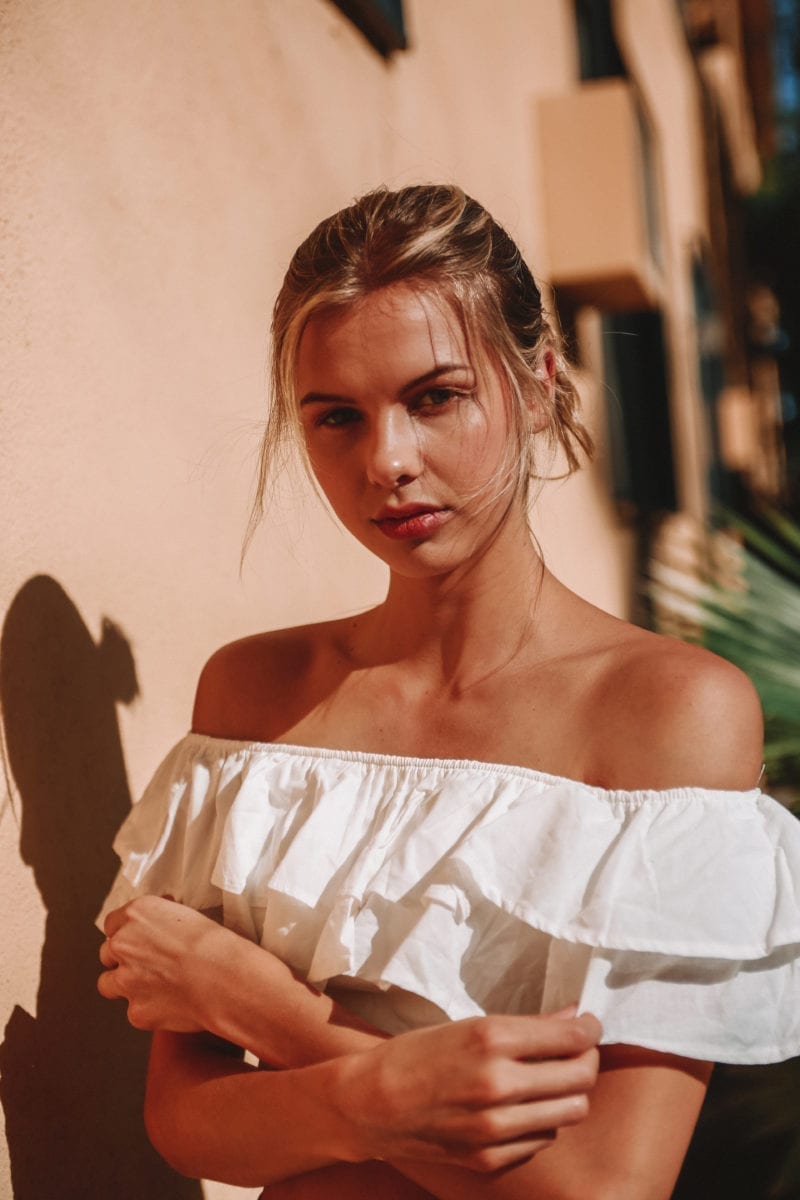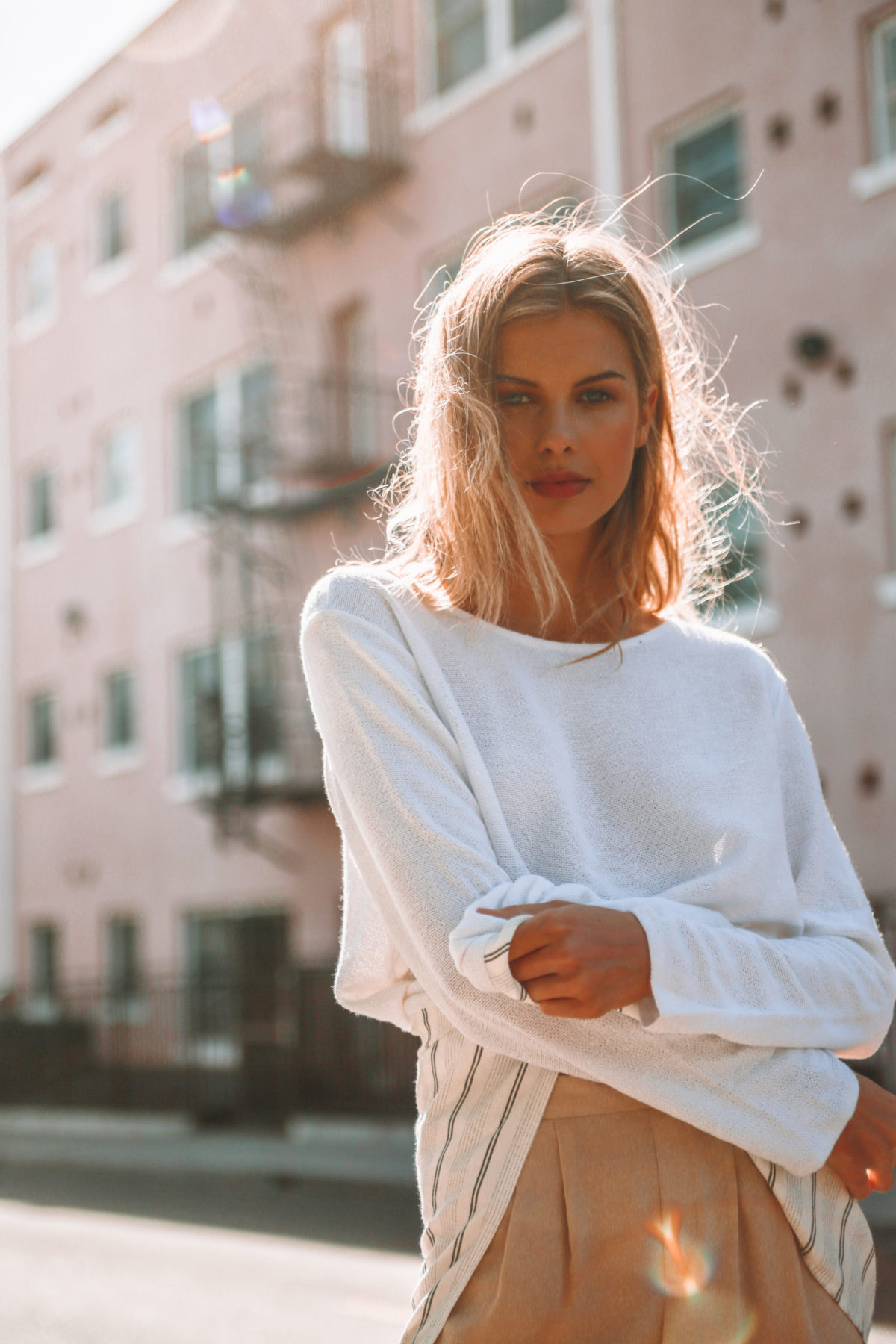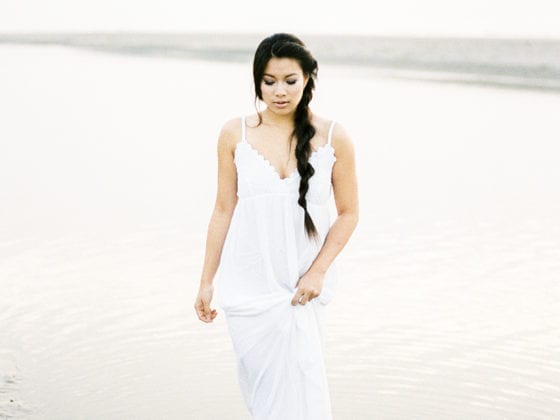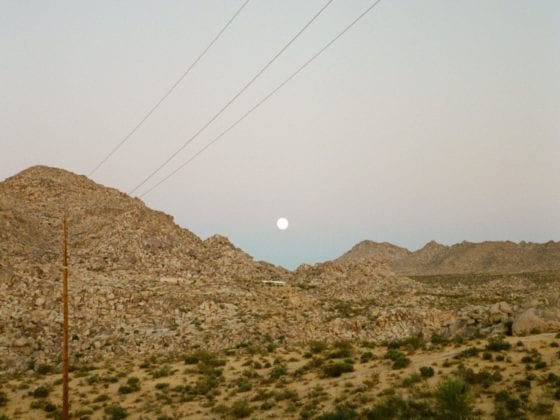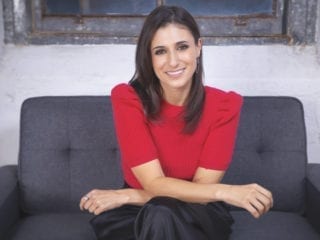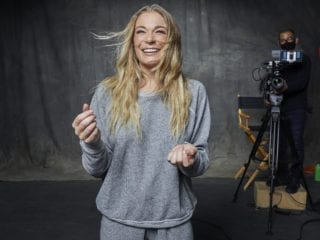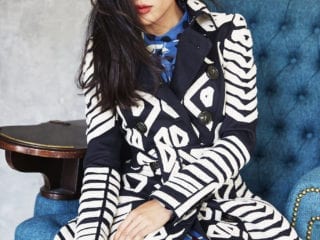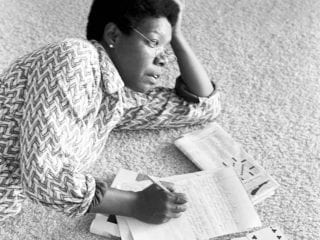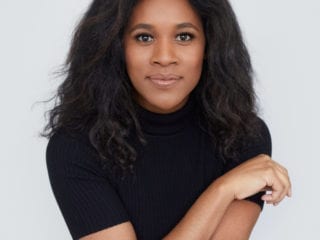“Real Women, Real Work” is a Darling series about everyday women who work in various fields including business, entertainment, science and education. We want to get to know the WHY behind their WHAT and get an inside look into different industries.
Kate Noel got her start in modeling at 20 years old with no prior modeling experience. Her serendipitous journey to modeling began in 2015, after just a month of living in Los Angeles. Kate was scouted by two modeling recruiters while relaxing on the beach. Little did she know that those two strangers would become her main bookers at her first modeling agency.
Five years later, with a thriving modeling and acting career, Kate is opening up about her career as well as her struggles with an eating disorder and the road to recovery. Kate also runs her own Youtube channel and podcast, Take The Cake with Kate Noel in an effort to inspire women and girls to self-acceptance.
What are your favorite parts of being a model and actress?
Was the modeling industry like what you expected?
The client’s and agent’s expectations are exactly what I expected, very high, but the modeling industry is certainly not as glamorous as America’s Next Top Model or the media make it seem. That threw me off. It is hugely competitive, and I quickly learned that there are a lot of girls that look like me.
I had to learn to handle rejection like a champ and separate my self-worth from my work as a model. Before last year, I thought that all I could offer to the industry was a thin, overworked, “never-say-no” version of myself and all my energy into my image as a model.
I had to learn to handle rejection like a champ and separate my self-worth from my work as a model.
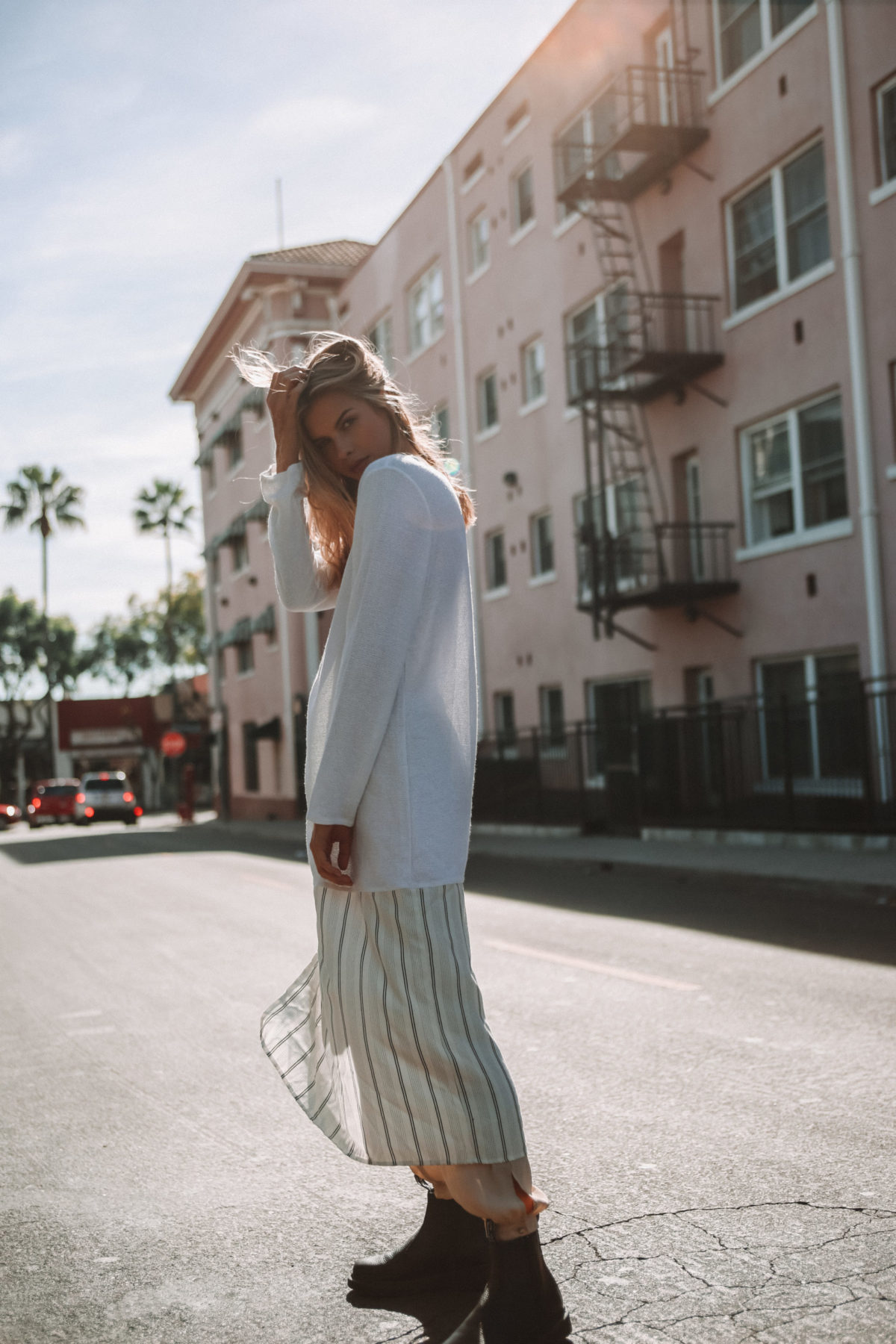 When did you realize that you had an eating disorder?
When did you realize that you had an eating disorder?
In hindsight, I feel like I knew I had an eating disorder right away when I started restricting food at age 14. I am now 25. I fully recovered when I was 24, which is 10 years of disordered eating.
During that decade, I never fully accepted that I had an eating disorder until I started my recovery journey. My eating disorder, like many others, started innocently with skipping breakfast or a snack, and it aggressively grew into clear and alarming disordered behaviors like bulimia. I 100 percent fully embraced and accepted that I had an eating disorder when I entered into eating disorder treatment in July of 2019.
Can you tell me about the pressures young women face in the modeling industry?
Every model will feel some sort of pressure whether from their agents, themselves, the media, friends, family, clients or photographers. In my experience, I felt the most pressure from myself to have an extremely thin but “healthy and fit” body, which is actually not possible. I fought with my body shape and size on a daily basis, counting calories and doing hours of cardio at the gym. I compared my body to how much work I was booking, and no matter what, I continued to fight to be thinner and thinner.
I also felt a lot of pressure from social media. There are so many beautiful, successful, fun models who are doing very well for themselves on Instagram. Those are typically the women who take photos with photographers every week, have the perfect wardrobe, travel to beautiful places and/or go to the coolest events.
I don’t live that lifestyle, but I tried to pretend I did all of these things. When it didn’t work, I felt ashamed and embarrassed. I was confused about what the “best version of myself” truly was.
How did you reverse the narrative and begin to overcome your eating disorder?
My eating disorder was a part of my identity well before I began modeling. I always wanted to recover. I simply didn’t have enough motivation or trust in my body to do it.
Luckily, I had a miraculous turning point from a couple major life events. The first one was the motivation to try and get my period back. I am a married woman, and my husband and I eventually want a family. While I had my eating disorder, I never had a menstrual cycle and was infertile. I was told by my OBGYN that I needed to gain weight to get my cycle back, and I also read the life-changing book called No Period. Now What: A Guide to Regaining Your Cycles and Improving Your Fertility by Dr. Nicola Rinaldi.
Simultaneously, I was getting burnt out during long photoshoot days while working because my eating disorder symptoms were worsening. I was dizzy, hungry, cold, anxious, sick and depressed, among many other symptoms. I hit a wall. I started hating modeling. The goal of getting my period back as well as feeling fed up with modeling because of “symptomatic” burn-out hugely facilitated my recovery.
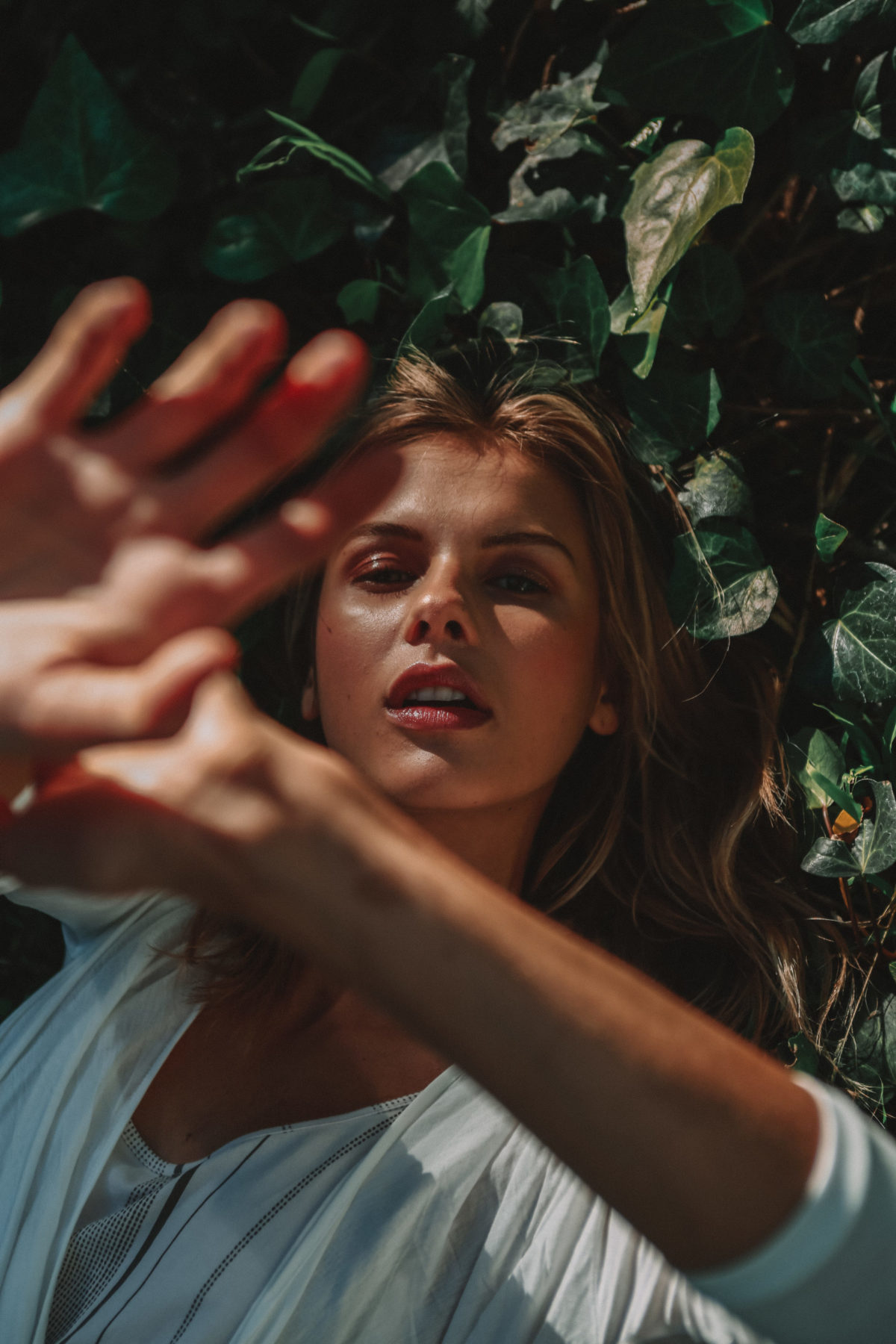
What was the recovery process like physically and emotionally?
Both the physical and mental recovery process were roller coasters to say the least. There were days I felt like I would feel on top of the world, and then, there were days I felt like hiding away even from myself. Eating disorders are extremely isolating, and the recovery process isn’t much different.
Eating disorders are extremely isolating, and the recovery process isn’t much different.
I started to recover “on my own” without medical help or therapy. I even got my period back after seven months of eating enough and resting! Honestly, the positive physical and mental effects of eating enough food were incredible and outweighed the negative. I felt alert, happy, excited and renewed.
I also started seeing a specialized therapist for ED, who I saw for a little more than six months, but I knew I needed to get the more intensive treatment because of how long my history with my disorder really was. I started attending ED treatment in an outpatient facility five days a week, for three hours each day. I fully committed to the treatment process by taking a few months off work.
During that time, I learned a lot about setting personal and professional boundaries at treatment, and I needed to implement what I was learning into my work life. I had a therapist and dietician who I saw for an hour every week, and the rest of the time was spent in group therapy settings and eating our meals.
How did your current agent facilitate a healthy environment for you in the modeling industry?
Why is beauty neutrality something you advocate for?
Honestly, it’s empathy. I judged myself for too long. While I have never been bullied about the way I look, I believe that if people stopped judging, shaming, discriminating against others, our society would not have the large numbers of mental health struggles that it does.
Every time we choose to judge or hate someone, it’s out of fear. Fear that we aren’t good enough or fear that we need to protect ourselves from something. Words can be so painful and have a long lasting impact on someone, and the least we can do for others is show love and kindness. It’s easy but takes unlearning and relearning to do.
Fear that we aren’t good enough or fear that we need to protect ourselves from something.
What motivated you to create a Youtube channel? What is the heart behind it?
I have always loved YouTube. Back when I was a middle schooler, I used to watch all of the beauty and fashion channels back in the early days of YouTube. I have always thought about starting my own channel, but because my eating disorder brought a lot of fear and anxiety, I never took the plunge.
When I started feeling the effects of recovery, I felt compelled to share with the world. I was actually in Bali, Indonesia, on a yoga retreat when the idea just came to me. I felt convicted in my heart to choose to be a role model, instead of a “look perfect all the time” fashion model. I knew that entering that space would force vulnerability out of me, but what did I have to lose?
In my first ever video, I awkwardly talk about some of the really great things that happen to our bodies when we gain weight if we have a history of restriction. It took off in a way I never imagined! I never thought my channel would grow into the little community it is now, and I feel truly blessed that I am able to be one of the many women on YouTube who stand against diet culture.
What advice would you give your younger self?
You will not be able to ever trust your body and mind until you surrender your disorder. It is going to get harder before it’s going to get easier, but once it starts to get easier, you won’t ever look back. You have to tell someone you are struggling with your mental health, and you have to make the change now or it will just get harder.
Healing my self-worth and negative body image happened only months after I began the recovery process and stopped engaging in behaviors. In my experience, I could only experience recovery if I just kind of said, “Screw it!” and tried it out. I honestly did not want to gain weight or fully recover until I essentially forced myself to start. Only then could I spark the recovery fire that brought me to the place I am today.
To follow along on Kate’s journey, follow her on IG at @katenoel__. Also, check out her Youtube and her podcast, Take The Cake with Kate Noel.
